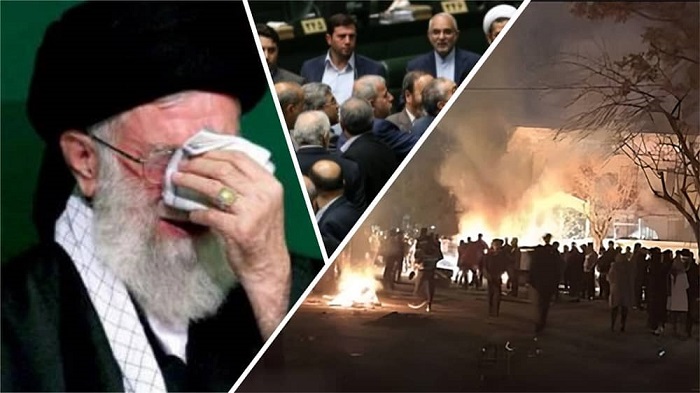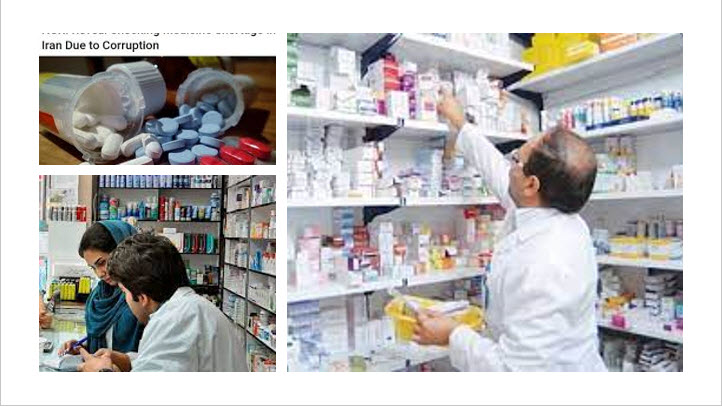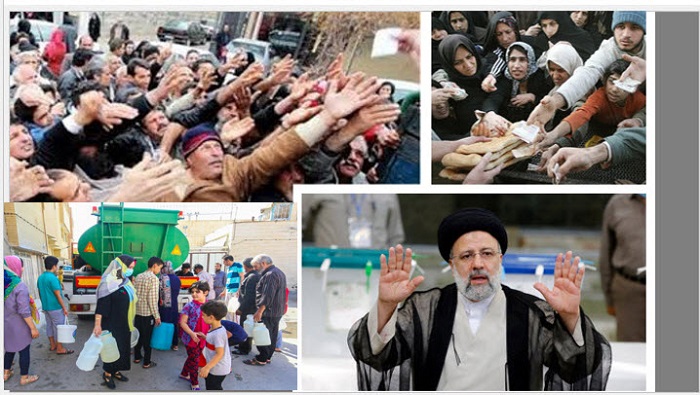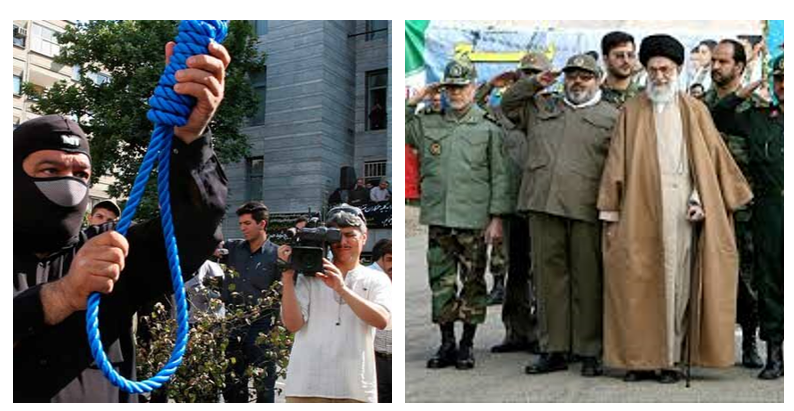
The ruling theocracy, led by Supreme Leader Ali Khamenei, faces an existential threat as it grapples with numerous crises, including economic turmoil, shortages of essential goods, and escalating unrest among the populace.
The nation suffers from its worst economic crisis in a century due to the regime’s pervasive corruption and ineptitude. State media and officials acknowledge the dire situation, with 50% inflation, a plummeting national currency, high unemployment rates, and declining purchasing power pushing more people below the poverty threshold.

The Iranian regime has no solution for these problems, as it is responsible for creating or exacerbating them. The crises, coupled with the regime’s oppression, have intensified societal restiveness and led to an existential threat to the ruling clerics. The ongoing nationwide uprising has exposed the system’s vulnerability.
In an attempt to consolidate power, Khamenei selected Ebrahim Raisi as president and handpicked members of parliament. However, this effort has failed, as Raisi’s government has seen numerous cabinet changes and increased infighting, forcing Khamenei to call for unity among the branches of government.

To maintain control, the regime has tried to detract from the uprising by promoting false alternatives or advocating for “civil disobedience” as the only solution for regime change. Yet, the Iranian people’s determination to establish a secular republic has thwarted the regime’s plans.
Civil disobedience is an unlikely solution in a country where basic freedoms are lacking, and people’s demands are met with bullets. As a result, Tehran’s escalating international isolation is becoming more apparent.

The Iranian regime finds itself in a quagmire, unable to resolve the nation’s socio-economic turmoil. It faces an outraged populace and a well-coordinated Resistance movement, all while grappling with increasing global isolation.
The regime has been unable to dissuade the uprising, leaving its future uncertain.The Iranian people’s resilience and commitment to change are evident, and the international community must support them in their pursuit of self-determination and self-defense.
The regime’s impending downfall is clear, and continuing negotiations with such an oppressive entity only ignores the people’s suffering. It is time to increase pressure on the regime and support the Iranian people’s righteous cause.
 MEK Iran (follow us on Twitter and Facebook), Maryam Rajavi’s on her site, Twitter & Facebook, NCRI (Twitter & Facebook), and People’s Mojahedin Organization of Iran – MEK IRAN – YouTu
MEK Iran (follow us on Twitter and Facebook), Maryam Rajavi’s on her site, Twitter & Facebook, NCRI (Twitter & Facebook), and People’s Mojahedin Organization of Iran – MEK IRAN – YouTu







